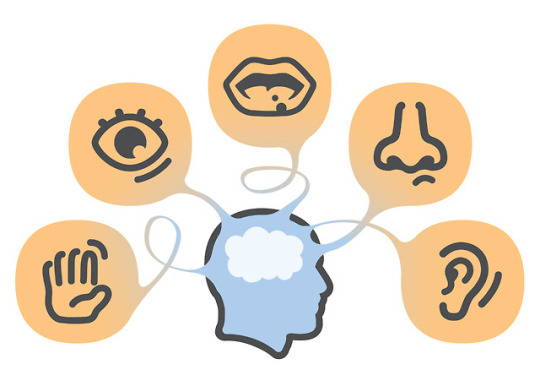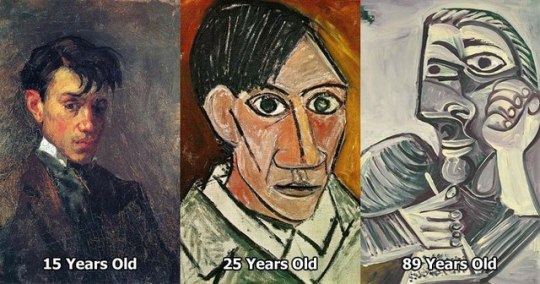Photo

Subjectivity refers to the singular life experiences that an individual's views, attitudes and beliefs are shaped by. One person's decisions completely differ to others who have been taught by failures and success. Subjectivity can also be moulded through language, as they form our world. The Amazonian Amondawa tribe do not have a word for time, so if this is the case then how do they perceive time? Perhaps they do not see time as linear as the Western world where time is incessantly monitored.
0 notes
Photo

Essentialism is the idea that everyone has something that they can identify with that is innate to themselves. It is this 'essence' that is predefining of the person and it is what makes the person or thing what it is. Through the western understanding of essentialism it is stated there must, “ be a fixed essence of femininity, masculinity, Asians, teenagers, and all other social categories.” (Barker 2012, p. 221)
0 notes
Photo

Sensory knowledge consists of the 5 senses: tactile, visual, gustatory, olfactory and auditory that allow artists to convey imagery through their art. Author Patrick Süskind's, 'Perfume' (1985) puts an emphasis on the olfactory senses in which the novel is heavily based upon. This is contrasted by John Steinbeck's 'Of Mice and Men' (1937) in which tactile imagery is more prominent. It is through sensory knowledge that artists can portray vivid images through a plethora of medium.
0 notes
Photo

Overdetermination is the Freudian concept that everything minute and trivial has an underlying reason. Habits such as nail-biting, hair-slicking to nervous pacing all have a deeper significance than just the physical action. Through this Freud presents, "a subjectivity not of simple presences and absences, but of potentially violent energies and conflicts, where negative feelings do not merely lapse from the conscious mind, but where they are kept in place by a force against which they constantly struggle." (Mansfield 2000, p. 30) Repression of thoughts require a huge amount of 'psychological energy' (Mansfield 2000, p. 30) and can be expressed through these minor behaviours. They can also be exuded through slips of the tongue (Freudian slips) and signify unconscious thoughts that may be feared.
0 notes
Photo

Creative identity is the collection of a profound set of beliefs that an artist portrays through their art. Through creative identity, an individual is able to channel innate philosophies and often controversial ideologies into their work. This allows for a buffer state and a position for eccentricity where repressed thoughts can be expressed. The majority of Frank Zappa’s work has been the case of satire. Zappa’s subtle and also crude taunts towards his society is communicated through the platform of his musical identity where he can share his beliefs with like-minded individuals.
0 notes
Photo

Creative influence is the amalgamation of tastes that an artist has directed into their work whether intentionally or inadvertently. Yevgeny Yamyatin's, 'We' (1924) is a fictional novel based in a dystopian society run by a totalitarian government. George Orwell's famed, '1984' (1949) is a suspiciously parallel read with knowledge that Orwell wrote a review on 'We' 3 years prior to his publication of '1984'. This can be seen as a creative influence and arguable a lack of acknowledgement towards the Russian author. However, it is apparent that through Orwell's review filled with appraise, Yevgeny Yamyatin was most likely the creative influence behind Orwell's novel.
0 notes
Video
youtube
“…we are equally familiar with the sudden irruption into our awareness of things far removed from what we were thinking about or busy with. At times, these flashes are pleasurable, at others menacing, but they are so much a part of our usual practice that, like our equally bizarre dreaming, we rarely bother with them, unless they become dominating, recurrent or uncontrollable.” (Mansfield 2000, p. 27)
The unconscious can often be perceived as a shadow and a mere reflection of our repressed thoughts. Frank Zappa’s, ‘Who Are The Brain Police?’ expresses concern towards a self-imposed policing of the mind. This line of thinking mirrors a Freudian belief that we as humans are constantly subduing partial thoughts that may seem threatening to our own identities.
“A lot of people police their own brains. They're like citizen soldiers, so to speak. I've seen people who will willingly arrest, try and punish their own brains.“ (Frank Zappa, Interview by Bob Marshall, October 22, 1988.)
0 notes
Photo

The decentred or postmodern self involves the subject in shifting, fragmented and multiple identities. Persons are composed not of one but of several, sometimes contradictory, identities. (Barker 2012, p. 225)
Fractured identity is the varying sets of self we have constructed in accordance to social circumstance. It presents a stark reality that we are not always who we think we are and 'it is only because we construct a comforting story or ‘narrative of the self ’ about ourselves' that we believe that we have one true sense of self. (Hall, 1992b: 277) However, the constant rebuilding of self, often seen in society as an 'identity crisis' is even more evident in retrospect as seen in Pablo Picasso's varying self-portraits.
0 notes
Photo

Social identity is what defines who and what we identify with in a perpetually changing world. It consists of the 'expectations and opinions that others have on us'(Barker 2012, p. 220) The counterculture of the 60's amassed a large community with like-minded minds that wanted to bring about a new way of thinking. An anti-war and pro-peace minority created a culture in which the youth could identify with.
0 notes
Photo

Authenticity is an artists relation to their work in pursuit of enlightenment in all senses. Just like an author will continue writing in betterment of themselves, Aldous Huxley's, 'The Doors of Perception' emanates a sense of curiosity for mescaline-induced trips. Huxley's authenticity is transparent in the light of his work in which he states, "it had always seemed to me possible that, through hypnosis, for example, or auto-hypnosis, by means of systematic meditation, or else by taking the appropriate drug, I might change my ordinary mode of consciousness as to be able to know, from the inside, what the visionary, the medium, even the mystic were talking about." (Huxley 1954, p. 5) His clear fascination and eagerness to be the guinea-pig on the topic validates himself as an authentic artist.
" Alienists have dosed themselves with mescalin in the hope thereby of coming to a better, a first-hand understanding of their patients' mental processes." (Huxley 1954, p. 2)
1 note
·
View note